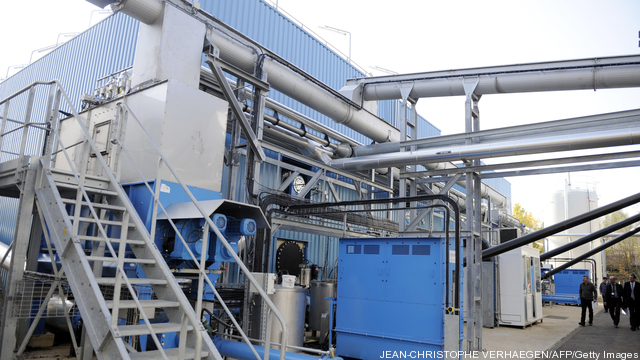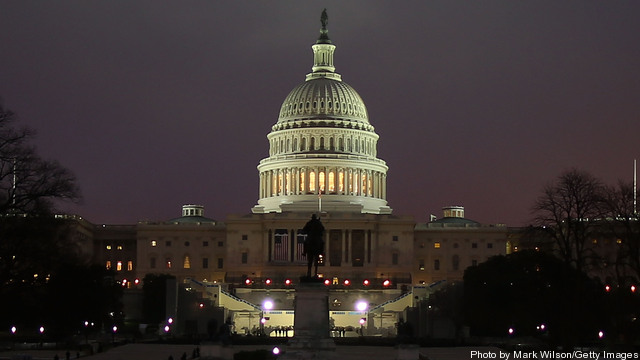The race to develop fuel cell vehicles for what automakers hope will be an interested consumer audience has mildly been heating up of late. Hyundai, for example, has been for the most part at the forefront as some of its production ready vehicles are now in the city of Copenhagen, Denmark to be used there in a municipal fleet. Now… Keep reading →
Biomass
Sign up and get Breaking Energy news in your inbox.
We will never sell or share your information without your consent. See our privacy policy.Can BP successfully challenge $blns in settlement payouts related to the Deepwater Horizon explosion and subsequent Gulf of Mexico oil spill? The company is accusing “trial lawyers and some politicians” of submitting thousands of inflated or false claims. [New York Times] Can biomass really challenge Gazprom’s supremacy as an energy supplier to Eastern Europe and… Keep reading →
Renewables suffered their first “serious slowdown” in 2012, as their rapid growth outpaced the capacity of some economies to continue subsidizing them, according to BP Chief Economist Christof Rühl. Global renewables consumption – defined as wind, geothermal, biomass, solar and waste – grew by 15.2% in 2012 over 2011 levels, to 237.4 million tons of… Keep reading →
The internet is all around us. Chances are as you read this article you are either plugged in or tapping into some kind of wireless device (hopefully over a secured network) from your charged laptop, tablet or smartphone. So it can be a large understatement to say that consumer access to the World Wide Web… Keep reading →

Renewable energy trading markets vary considerably by state and can be heavily influenced by politics, but they are functioning with apparent room for growth.
The various markets fall within the territories controlled by large utilities and independent system operators and are then further subdivided by state. Some states like Illinois fall within the jurisdiction of multiple utilities or ISOs. Keep reading →

The Renewable Fuel Standard (RFS), a federal policy requiring that ethanol be blended into the U.S. gasoline supply at annually increasing amounts, has been touted by the biofuels industry as the solution to a myriad of energy woes. But in the seven years since the policy was enacted, the RFS has failed to meet its goals of protecting the environment and reducing dependence on foreign oil. It has and is forcing Americans to pay more for fuel, and it has raised food prices around the world. And yet, ethanol lobbying groups continue to argue on behalf of the policy, armed with an array of invalid claims:
Myth: “Oil is the cause of casualties abroad and economic volatility at home.” Keep reading →

Few innovations hold more promise than alternative fuels. The prospect of driving our cars on clean, renewable fuel has tremendous appeal. Yet few technologies have had more hype and disappointment than biofuels. And given all the fits and starts in the renewable fuel category it’s easy to be skeptical about the future of biofuel. Today, there is reason to renew hope. The breakthrough innovations we have all been waiting for to make clean, renewable fuel are finally becoming reality. Here is a look at five myths surrounding biofuels that can now be debunked based on new thinking and new technological advancements:
Myth #1: Producing biofuel takes valuable food out of the food supply and is inefficient use of farm land. Keep reading →

The development cycles for projects using established technology are famously lengthy in the energy sector, while the length of time it takes for new technology to be developed and brought to commercial scale runs to decades, if not longer.
The advanced biofuels business, lent a generous mandate by US politicians against the background of fears over energy security and rising oil prices in the middle of the last decade, has managed to accelerate the development cycle to a degree that would have been unimaginable a decade ago, representatives for the industry said on a call with reporters recently. Keep reading →

The oil industry has taken aim at the Renewable Fuel Standard (RFS) in a self-interested bid to retain dominance over America’s transportation fuel sector. Our dependence on oil is stifling consumer choice and jeopardizing our national security. Fixing those issues means diversifying our fuel supply; that means breaking the oil monopoly.
We are a nation addicted to oil and until the RFS was created in 2005, we had no infrastructure to break that addiction. The RFS increases consumer choice and energy security, while simultaneously decreasing the overall negative impacts that oil dependence has on our economy and environment. That benefit –consumer choice – is exactly why the American Fuel and Petrochemical Manufacturers, which spent over $1.6 million lobbying in the fourth quarter of 2012 alone, is funding efforts attacking the policy. Keep reading →
There is a contentious debate underway regarding mandated ethanol blending into gasoline that touches on issues like food versus fuel and the sanctity of free markets. The severe drought that hit the US this past summer reduced corn crop yields – a major ethanol feedstock – and sparked calls for a waiver of the Renewable Fuels Standard that reportedly uses some 40% of the US corn crop to produce ethanol.
When Breaking Energy recently sat down with two industry analysts and asked them about mandated ethanol blending, we received decidedly anti-RFS viewpoints. In this video, David Rewcastle, Senior Energy Analyst with Source Capital Group and Michael Lynch, President and Director of Global Petroleum Service with Strategic Energy Economic Research explain why government-mandated ethanol blending into gasoline is flawed and suggest how the system might be improved. Keep reading →




